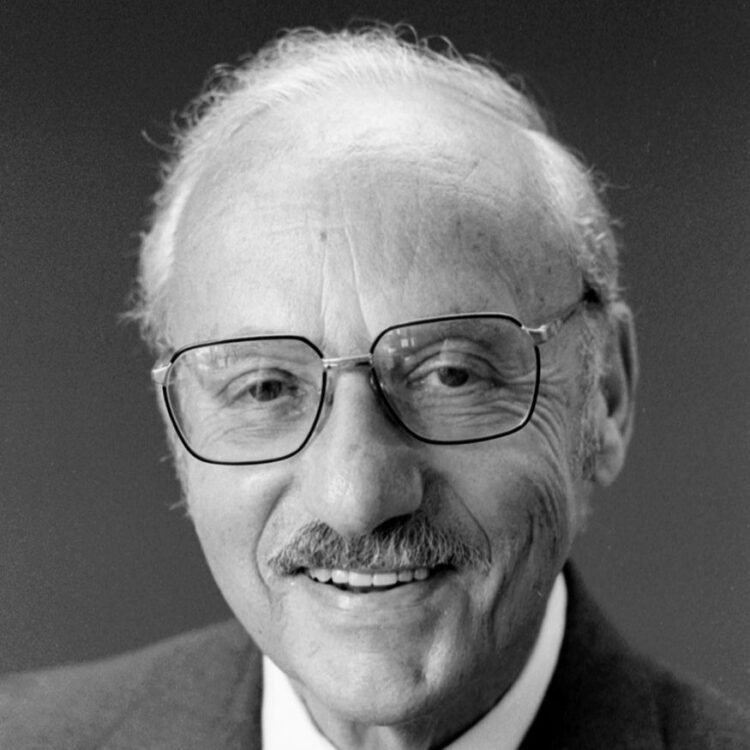The Math Student Who Solved the ‘Impossible’ by Accident
Remember that TikTok about the student who solved “impossible” math problems because he thought they were homework? Yeah, that actually happened.
Back when your grandparents were young, a sleep-deprived grad student named George Dantzig stumbled into class late, copied down some equations from the board, and accidentally changed mathematics forever.

Running Late, Making History
@marcbreathes George Dantzig and positive thinking #math #statistics #learningontik #academicsoftiktok ♬ original sound – Marc Ordower
It’s the 1940s. While everyone else is stressing about their next stats exam, Dantzig is running late (relatable), sees some problems on the blackboard, and thinks “Oh crap, must be homework.”
Only they weren’t homework. They were two famous statistical equations that had been driving mathematicians nuts for years.
But here’s where it gets good.
The Ultimate “Task Failed Successfully” Moment
Dantzig, blissfully unaware he was tackling mathematical Mount Everest, just… solved them.
Like someone accidentally winning the Olympics because they thought it was a casual jog around the park.
When he finally turned in his “homework,” his professor probably needed a minute to process what just happened.
Fun fact: Dantzig later admitted if he’d known these problems were supposedly impossible, he wouldn’t have even tried. Sometimes ignorance really is bliss, folks.
Before Matt Damon Made It Cool
If you’re thinking “Wait, isn’t this basically the plot of Good Will Hunting?” – you’re onto something.
That scene where Matt Damon’s character solves the impossible equation?
Reality beat Hollywood to the punch by about 50 years. Though I’m pretty sure Dantzig didn’t have to deal with Robin Williams trying to psychoanalyse him afterward.
The Math That Broke Math Twitter
Fast forward to 2024, and Dantzig’s story is having a moment on social media.
Between YouTube shorts about “GENIUS STUDENT ACCIDENTALLY DOES THE IMPOSSIBLE???” and TikTok recreations, a new generation is discovering that sometimes the best way to make history is to not realize you’re trying to make history.
The Real Impact
The problems Dantzig solved were groundbreaking puzzles in statistical theory and linear programming. His solutions changed the game in three major ways:
- They revolutionised how businesses handle complex logistics and scheduling
- They gave statisticians new tools for predicting patterns in data
- They proved that sometimes fresh eyes can crack problems that stumped experts for years
The Plot Twist That Keeps On Giving
Carol Dweck, who studies why some people nail it while others bail it, points to Dantzig’s story as proof that our brains work better when we don’t psych ourselves out.
It’s like when you nail a difficult riff because you didn’t realise it was supposed to be difficult.
The Remix: What Dantzig’s Story Means Today
Next time you’re staring down something that seems impossible, channel your inner Dantzig.
Maybe don’t show up late to class, but definitely keep that “I don’t know this is supposed to be hard” energy.
Quick Hits: The Dantzig FAQ
Q: So who exactly was this mathematical maverick?
A: George Dantzig – the guy who walked into class late and walked out a legend in statistical theory and linear programming.
Q: What exactly did he solve?
A: Two statistical problems that were giving mathematicians migraines. His solutions helped create new ways to solve complex optimization problems – basically, the math that helps businesses and scientists figure out the most efficient way to do… pretty much anything.
Q: Why should I care?
A: Because sometimes the best way to do the impossible is to not know it’s impossible. Also, his story proves that being late to class can occasionally work out (results may vary, don’t quote us on this).


